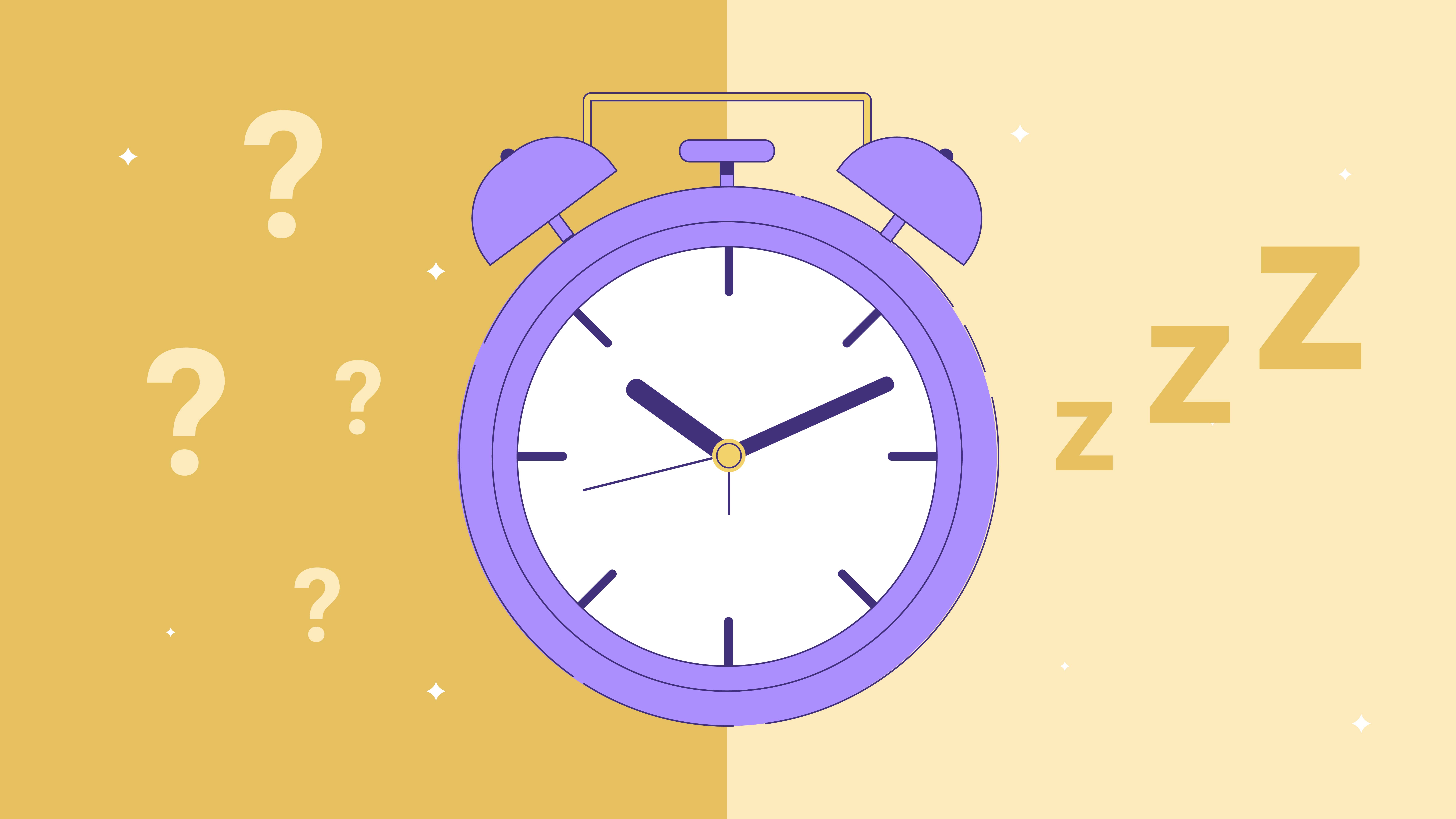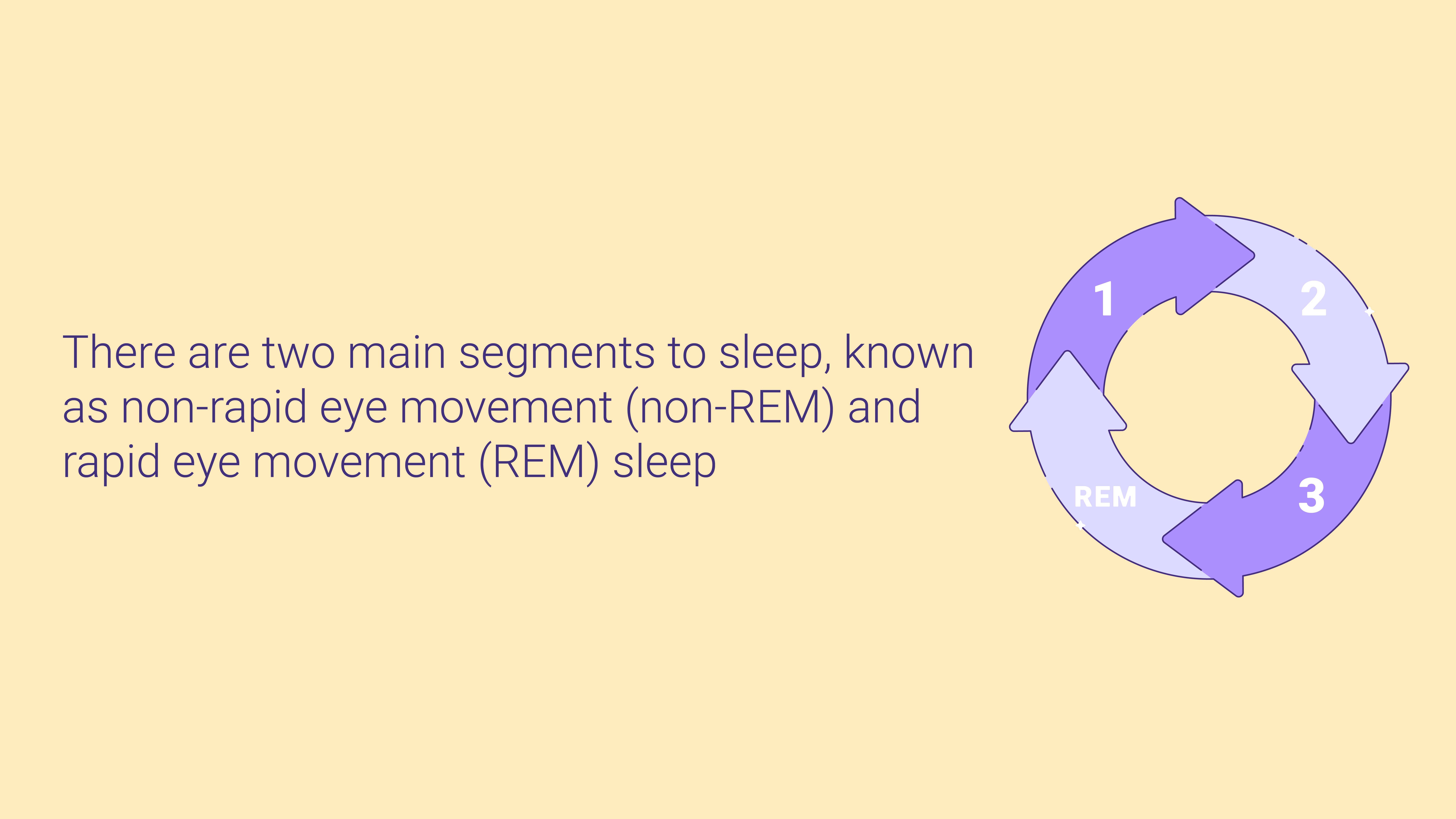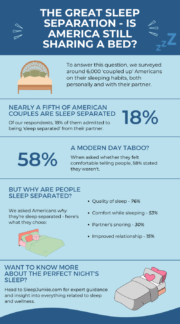
Light Sleepers vs. Heavy Sleepers
There’s little research to explain why some people are light sleepers, while others can sleep through anything. Some theorize lifestyle, genetics, stress, brain wave activity, and undiagnosed sleep disorders all affect whether or not someone is a light or heavy sleeper.
While heavy sleepers might have an easier time getting to sleep, light sleepers still need adequate sleep because it contributes to their physical and cognitive functioning, as well as their overall mental health. We discuss what differentiates light and heavy sleepers, and the steps light sleepers should take to improve their sleep quality and quantity.
What Is a Light Sleeper?
A light sleeper wakes up easily and is sensitive to the smallest of changes in their environment. Even the slightest smells, sounds, light, and movement are disruptive for light sleepers.
Light sleepers rarely enter deeper sleep stages, and spend the most time in stage 1—when the body is between awake and asleep—because their bodies and brains never completely relax.
Light sleeping may be caused by undiagnosed sleep disorders such as obstructive sleep apnea or insomnia, causing irregularities in a person’s sleep pattern. Also, older adults are most commonly light sleepers, potentially due to heightened sensitivity to stimuli or physical and mental health conditions.
What Is a Heavy Sleeper?
A heavy sleeper doesn’t wake up during the night despite environmental disturbances such as sounds, light, smell, or movement. They fall asleep effortlessly and can be difficult to awaken, often getting good quality and lengthy sleep.
Heavy sleepers spend more time in the deep sleep stages than light sleepers because their sleep is uninterrupted. Generally, young people and children spend most of their sleep in deep and heavier sleep stages as their bodies are still developing.
The Sleep Stages
There are two main segments to sleep, known as non-rapid eye movement (non-REM) and rapid eye movement (REM) sleep. These segments are separated into five stages, and altogether, make up one sleep cycle. The first four stages are non-REM sleep and the fifth is REM sleep. All stages, while serving different purposes, are vital to well-rounded, revitalizing sleep.
In one night, you complete roughly four to five sleep cycles. Let’s take a look at the five sleep stages.
Stage 1
Stage 1 sleep is characterized as the transitional, non-REM sleep stage between being awake and falling asleep. It’s a very light and quick stage, lasting only a few minutes. A person’s heart rate and breathing begin to slow and their eyes and muscles relax. Sleepers can easily awaken during this short period.
Stage 2
Stage 2 is the second non-REM sleep stage. It’s still light sleep, but it continually deepens as the muscles relax, body temperature lowers, and heart rate and breathing slow. Sleepers can still wake easily during stage 2.
Typically, stage 2 sleep lasts around 20 minutes per cycle, though many people, particularly light sleepers, spend most of their sleep in this state.
Stages 3 and 4
Stages 3 and 4 are restorative sleep stages and also known as slow-wave or delta sleep. These stages are the final and deepest non-REM sleep stages, lasting approximately 30 minutes per sleep cycle.
When in slow-wave sleep, the body restores itself both physically and mentally, which is critical for memory processing, muscle recovery, and hormonal balance. The body is relaxed and it’s difficult to awaken somebody during this healing stage.
Stage 5 (REM Sleep)
Rapid eye movement (REM) sleep is the final sleep stage, usually beginning 90 minutes after a person falls asleep. The first cycle of REM lasts about 10 minutes but gradually gets longer—almost an hour—by the final sleep cycle of the evening. The average adult spends about 25 percent of their sleep in the REM stage.
During this stage, the eyes begin to move rapidly under closed eyelids, and blood pressure rises. Their brain activity is similar to when a person is awake and as a result, the most vivid dreams occur during REM.
The Importance of REM Sleep
REM sleep improves both cognitive and physical functions of the body, including memory, mood, the immune system, and weight. Since light sleepers don’t reach REM sleep as often or for as long compared to heavy sleepers, they are not receiving the same benefits.
Light sleepers lacking adequate REM sleep aren’t only fatigued, but also at risk of developing chronic health issues including dementia, Type 2 diabetes, depression, and migraines.

What Are Sleep Spindles?
A small 2010 study wanted to see how sleepers respond to noise and used an EEG test to measure their brain waves. The researchers found sleepers’ reactions were linked to brain waves called “sleep spindles.”
Patients with a higher frequency of sleep spindles were more likely to sleep through loud and disruptive noise while those with fewer sleep spindles were easier to awaken with sound. Sleep spindle production may explain the difference between heavy and light sleepers, though researchers are unsure if there’s a way to increase the brain’s sleep spindles.
Tips For Getting Better Sleep
If you’re a light sleeper and think sleeping peacefully is impossible, fear not. There are simple ways to achieve a good night’s rest, including following a consistent routine and keeping your room cool.
Create A Bedtime Routine
Following a consistent nighttime routine preps your mind and body for sleep. Spend 30 to 60 minutes relaxing before bed, perhaps by taking a warm bath, reading a book, or doing a skincare routine. During this time, avoid over-stimulating activities such as vigorous exercise, working, or using electronics.
Sleep in A Relaxing Environment
Whether it be your hot mattress or the street lights shining into your room, a rowdy environment hinders your sleep. The optimal sleeping environment is cool, dark, and quiet.
The ideal bedroom temperature is around 60 to 67 degrees so you stay cool but not too cold. If brightness is the issue, blackout curtains block out external light and even heat. Do your best to have a quiet bedroom, but if the noise is out of your control, use earplugs.
Invest in a high-quality mattress and pillows to properly support your body and avoid any pain or discomfort throughout the night. Many mattresses and pillows also contain cooling and breathable technologies.
Don’t Use Electronics In Bed
Many people use electronics to wind down before sleeping. Watching a show might seem relaxing, but it will keep you awake and delay sleep. The blue light emitted from screens inhibits melatonin release, leaving your brain and body awake.
Put your electronics away at least 30 minutes before sleeping; instead of using your phone or TV, try reading a book or journaling to relax.
Avoid Caffeine And Heavy Meals In The Evening
Overeating or drinking caffeine at night may disrupt your sleep. Beverages and foods with caffeine—coffee, teas, and sports drinks—are designed to keep you awake, while heavy meals high in salt, fat, and sugar cause heartburn and indigestion, making it painful to relax.
If you want to enjoy greasy foods, big meals, or caffeinated drinks, eat them earlier in the day. At nighttime, enjoy foods for sleep at dinnertime and if hungry after, a healthy, high-carb snack or non-caffeinated tea so you don’t go to sleep hungry.
Have A Sleep Schedule
Following a consistent sleep schedule is one of the best ways to improve your sleep. When making a schedule, give yourself at least 7 to 9 hours of sleep per night and go to bed within 15-30 minutes of the same time every day.
If you need a daytime snooze, take a power nap no longer than 30 minutes earlier in the day. Extra-long naps can make it difficult to fall asleep come nighttime.
FAQs
Is snoring a sign of deep sleep?
Although snoring is commonly associated with somebody sleeping deeply, the two are unrelated and you can snore in any stage of sleep. Rather than being a signal of a deep sleep, snoring is a sign of sleep apnea or a blocked nasal passage, perhaps from allergies or having a cold.
Is it better to have more deep or light sleep?
While all sleep stages are vital to quality sleep, deep sleep is arguably the most essential. Compared to other sleep stages, your body restores the most during deep sleep, both physically and mentally.
Is too much deep sleep bad for you?
No, deep sleep heals your body after a long day. Some individuals may need more deep sleep to feel well-rested, so it varies. The average adult needs about 1 to 2 hours of deep sleep per every 8 hours slept.
How many hours is oversleeping?
The amount of sleep each person needs varies based on age, body composition, and lifestyle. For the average adult, the amount of sleep needed to feel well-rested is 7 to 9 hours per night.
If you sleep 9 hours or more per night yet don’t feel well-rested, this may be due to sleep disorders such as sleep apnea or insomnia. Always speak to your doctor for treatment if you believe you have a sleep disorder.
Why am I tired all day but wide awake at night?
If you’re constantly feeling fatigued throughout the day, but feel completely awake upon laying down to go to sleep, you may have an abnormal circadian rhythm. Circadian rhythm disorders can be caused by factors such as shift work, time zone shifts, or pregnancy.
You can reset your circadian rhythm by improving your overall sleeping habits and having a consistent sleep schedule. Although you may feel tired during the day, long naps can confuse your circadian rhythm. We recommend taking short power naps to lessen any tiredness during the day.
Conclusion
Every individual deserves quality sleep as it affects all aspects of our lives. It may feel as though heavy sleepers have it easy, but light sleepers shouldn’t lose hope. Taking small steps to improve sleeping habits, including creating a sleep schedule, limiting caffeine, and investing in a supportive mattress, facilitates better and deeper sleep.
If your light sleeping is interfering with your quality of life and ability to function day-to-day, it may be worth contacting your doctor to discuss your concerns.


